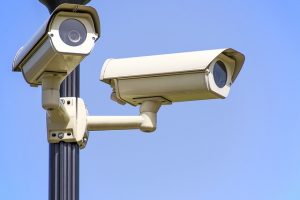How Video Evidence Helps You at Unemployment Insurance Hearings
How Video Evidence Helps You at Unemployment Insurance Hearings
Video Evidence
Digital video technology has helped to advance just about every industry. Employers have now seen the value of having video cameras for security and surveillance purposes, but there is another advantage they have that is often overlooked.
The use of video evidence has become more prevalent in unemployment insurance (UI) hearings. Employers have the upper hand when they introduce video surveillance in court. It can prove or disprove an employee’s actions and it could definitely impact the results of an unemployment hearing and employee termination procedure.
For example, a middle-aged woman entered a coffee shop with a trash bag of her belongings. According to the manager, she came in yelling expletives and began to ransack the merchandise shelves near the coffee bar. The manager called security and a male security guard promptly escorted the woman out of the coffee shop.
As the security guard was escorting the woman out of the coffee shop, she slipped and fell on the street. Three days later, the woman filed a complaint against the security guard, claiming she was actually pushed onto the street. Following a deeper investigation, the security guard was discharged and he filed a claim for UI benefits. The UI department ruled the security guard was eligible for benefits based upon his statement of the event and the fact that the employer had no eyewitnesses to support the woman’s story.
During the UI hearing, the employer played security video footage of the incident which showed the security guard had actually shoved the woman onto the street where she could have been hit by oncoming traffic.
After the judge had reviewed the video evidence, he was able to reverse his initial decision to award benefits to the claimant. Had the video not been presented, the claimant’s testimony would have been accepted because the employer did not have a first-hand witness.
Here are some guidelines on how to use your security cameras in the best possible way:
- Video footage should be aimed to capture actions of employees and customers
- If possible, have any witnesses immediately explain what happened on the video evidence
- Be sure you can play the video footage on other equipment other than your own.
- Multiple copies of the video should be brought to court to leave with the judge and the claimant
- For a telephone court hearing, you will probably have to forward a copy of the video to the judge and the claimant in advance
- Be sure the witness is familiar with the footage and can easily direct the judge to the relevant portion
- If it’s possible, include the timestamps or other marking on the video evidence
- Employers should have portable equipment available to play the video at the hearing, as at least in NY, the Judges will not allow employers to use their computer.
It’s clear employers can really benefit from video evidence as it will ultimately show proof of the incident. However, the employer should always review the video internally before the unemployment hearing (and preferably before the termination) to be sure of its value.



